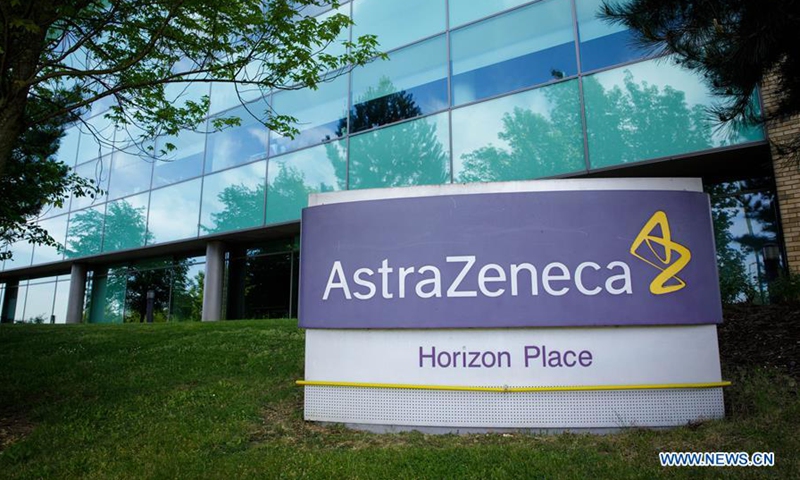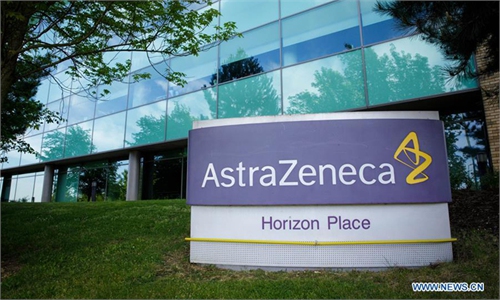WHO says don’t dismiss AstraZeneca shot after S.Africa delays jabs

Photo taken on May 18, 2020 shows a logo in front of AstraZeneca's building in Luton, Britain. AstraZeneca, which is developing a possible vaccine against COVID-19 in partnership with the University of Oxford, on Wednesday put on hold the phase-3 trial of its vaccine following an unexplained illness in one trial participant in Britain. (Photo by Tim Ireland/Xinhua)
The World Health Organization (WHO) insisted Monday that the AstraZeneca vaccine was still a vital tool in the global fight against the coronavirus pandemic, after South Africa delayed the start of its inoculation program over concerns about the drug's efficacy against a virus variant.As concerns rose over the AstraZeneca shot, the US said it had lost its first sitting member of Congress to the virus, 67-year-old Texas Republic Ron Wright, who had also been battling cancer.
US President Joe Biden called Wright a "fighter who battled bravely against both cancer and COVID-19." His death came after a 41-year-old Republican House member-elect lost his life to the disease in December, just days before he was to be sworn in.
In South Africa, alarm was raised when a trial at Johannesburg's University of Witwatersrand concluded the AstraZeneca vaccine provided only "minimal" protection against mild to moderate COVID-19 caused by the variant first detected in South Africa.
That was bad news for many poorer nations counting on the logistical advantages offered by the AstraZeneca shot.
But Richard Hatchett, head of the Coalition for Epidemic Preparedness Innovations (CEPI), said it was "vastly too early to be dismissing this vaccine."
"It is absolutely crucial to use the tools that we have as effectively as we possibly can," he said, speaking at the WHO's regular biweekly press briefing on the pandemic.
The AstraZeneca vaccine is currently a vital part of Covax, the system set up to procure COVID-19 vaccines and ensure their equitable distribution.
It accounts for almost all of the 337.2 million vaccine doses Covax is preparing to begin shipping to some 145 countries during the first half of 2021, once it receives WHO authorization, expected next week.
South Africa, the continent's hardest-hit nation, had been due to start its campaign in the coming days with a million AstraZeneca doses.
But the government decided to hold off because of the results from the trial.
South Africa has 1.5 million AstraZeneca vaccine doses, which will expire in April.
AFP

